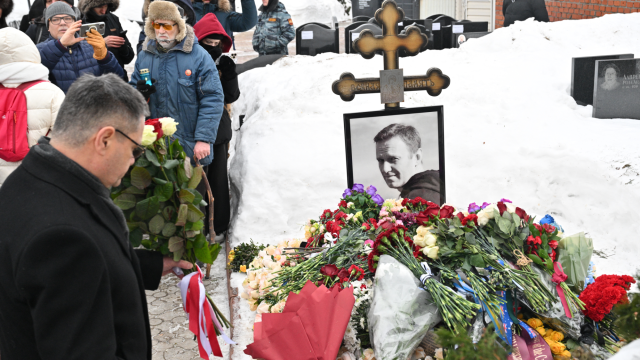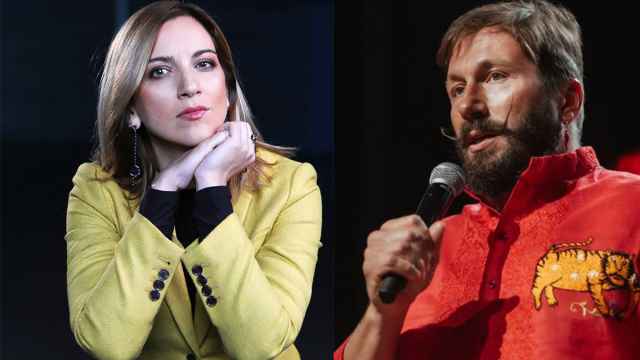Vladimir Putin's healthy image is a stark contrast to that of several Russian and Soviet leaders before him, from Leonid Brezhnev to Putin's predecessor Boris Yeltsin.
The extent of Soviet officials' medical problems while in office has remained partly secret. But the poor health of aging Communist Politburo members did not take society by surprise as leaders started to die one after another following the passing of gravely ill Soviet leader Leonid Brezhnev in 1982.
"It was getting harder and harder for us to maintain even the appearance of Brezhnev as an active and intelligent leader," prominent Kremlin doctor Yevgeny Chazov wrote in his recent book about treating Soviet leaders.
"We saw how Brezhnev was fading and understood that a tragedy might occur at any time," Chazov wrote.
Brezhnev, who died at age 76, suffered from aortic atherosclerosis, a form of vascular disease, which in the final years of his life caused him to have problems with his speech.
Brezhnev's successor Yury Andropov, the former KGB head, died soon after Brezhnev the same year, having suffered kidney failure the year before. He was followed by Konstantin Chernenko, an already sick man who became head of the Soviet state in February 1984 and died a month after, giving way to Mikhail Gorbachev, the Politburo's youngest member.
Former President Boris Yeltsin became the first Russian leader to publicly admit that he had major health problems when he announced on national television in September 1996, after having been elected to a second term in July, that he needed to undergo a heart operation.
The surgery to bypass five clogged arteries supplying blood to Yeltsin's heart was carried out successfully in a Moscow hospital. During the operation, all presidential powers, including the ability to launch a nuclear attack, were transferred to then-Prime Minister Viktor Chernomyrdin.
Related articles:
A Message from The Moscow Times:
Dear readers,
We are facing unprecedented challenges. Russia's Prosecutor General's Office has designated The Moscow Times as an "undesirable" organization, criminalizing our work and putting our staff at risk of prosecution. This follows our earlier unjust labeling as a "foreign agent."
These actions are direct attempts to silence independent journalism in Russia. The authorities claim our work "discredits the decisions of the Russian leadership." We see things differently: we strive to provide accurate, unbiased reporting on Russia.
We, the journalists of The Moscow Times, refuse to be silenced. But to continue our work, we need your help.
Your support, no matter how small, makes a world of difference. If you can, please support us monthly starting from just $2. It's quick to set up, and every contribution makes a significant impact.
By supporting The Moscow Times, you're defending open, independent journalism in the face of repression. Thank you for standing with us.
Remind me later.





